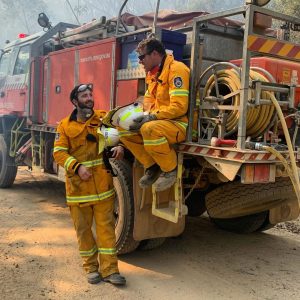
Australia's bushfire crisis leaves employees vulnerable
10th January, 2020
An edited version of this post was published in The Sydney Morning Herald on 9 January 2020: Australia fires: volunteers, victims should have right to paid leave
Australia’s bushfire crisis has highlighted several limitations of our workplace relations laws, which provide insufficient support for workers directly affected or assisting as volunteers.
As highlighted in a recent SMH article [https://www.smh.com.au/business/workplace/will-i-get-paid-if-my-workplace-or-house-has-burnt-down-20200102-p53odl.html], there is no specific form of leave available to an employee whose house has been burnt down. They would have to rely on other forms of leave in these circumstances, such as annual leave or (if applicable) personal/carer’s leave. Alternatively, provisions in some enterprise agreements allow additional paid or unpaid leave to be taken at the employer’s discretion.
In contrast, under the Fair Work Act, business owners have the right to stand down staff without pay where work must stop due to circumstances beyond the employer’s control – such as the impact of bushfires.
The main employment issue posed by this national disaster is the position of emergency volunteers, such as firefighters with the NSW Rural Fire Service or Victoria’s Country Fire Authority.
These volunteers have minimal rights under the Fair Work Act – they are only entitled to be absent from work for a ‘reasonable’ period to engage in this kind of community service activity, including reasonable travelling time and reasonable rest time following the activity. This is unpaid leave and the duration for which an employer will allow it is a matter to be negotiated between employer and employee.
These minimum standards can be improved upon under state law or enterprise agreements and other arrangements implemented by private sector employers.
For example, NSW public servants can take unlimited paid leave to engage in emergency service activities. ANZ has increased its employees’ entitlement from five days’ paid leave to cover all time away from work serving as a volunteer, while NBN Co is giving volunteers up to four weeks’ paid leave. [source: https://www.abc.net.au/news/2019-12-24/firefighters-public-service-leave/11825416] Under our EBA, RMIT University staff are entitled to paid leave for the duration of engaging in firefighting or other emergency assistance operations.
Belatedly, Prime Minister Scott Morrison announced on Christmas Eve that volunteer firies who are federal government employees would be given four weeks’ paid leave on top of any other entitlements they may have.
This was followed on 29 December with a new federal scheme under which NSW volunteers who are self-employed, or work for a small-medium business, can claim up to $300 per day for lost income – with an overall cap of $6000. Other states can join this scheme. Queensland has already done so.
The PM also stated that the Government ‘expect[s] larger companies to provide their employees with 20 days of emergency services leave,’ although they are still not compelled to do that and business practices vary.
These federal government announcements followed reports that some volunteer firefighters were using their own annual leave to continue providing emergency support.
That is what happens when you have a patchwork of inconsistent laws across the country, leaving individual volunteers reliant on whatever arrangement (if any) their employer has in place.
Some union leaders, such as Godfrey Moase of the United Workers Union, have therefore called for the Fair Work Act to be amended to ensure that all workers have the right to paid emergency services leave as part of the National Employment Standards.
That seems like a necessary step that will ensure all in the community are bearing the increasingly heavy load presented by the bushfire season beginning earlier and lasting longer than in years past.
